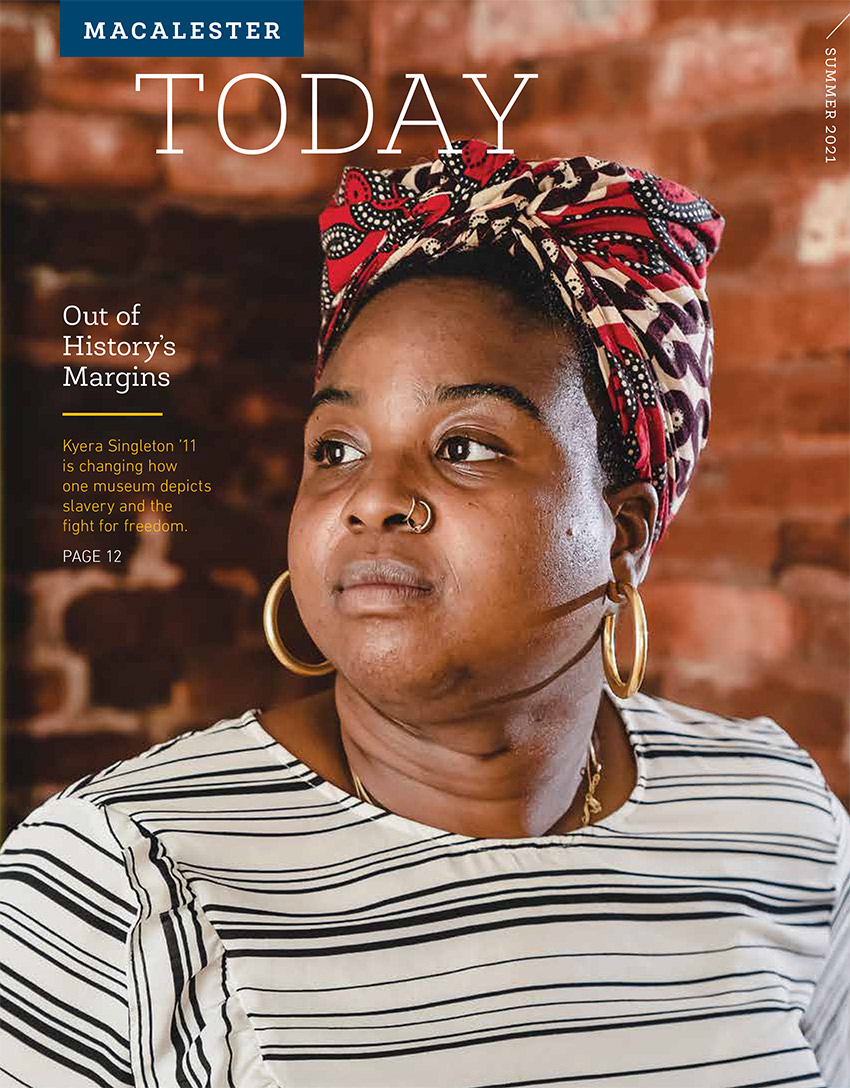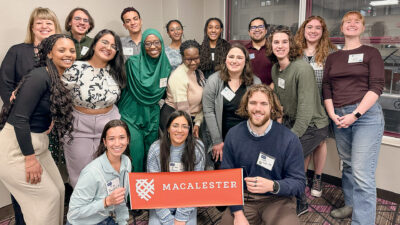
By Julie Kendrick / Photo by Antonio Cañadas
It’s the classic question for advice columnists everywhere:
My family is getting together for a celebration, and I’m concerned that my staunch right-wing uncle and my left-of-center cousins will end up in a shouting match—maybe even a food fight. What should I do (besides wearing a rain slicker and hoping for the best)?
If that seems like a tricky situation, then consider the day-to-day challenges faced by Paul Smyke ’85, a member of the executive committee and head of regional strategies for North America at the World Economic Forum.
The Forum’s annual meeting at Davos, Switzerland, is usually attended by CEOs, heads of state/government, top academics, media leaders, and arts and culture influencers. During his tenure, the group of politicians that have spoken at Davos and other Forum events includes presidents, vice-presidents, governors, and more than 100 U.S. senators and members of Congress. They represent an incredible range of political and philosophical viewpoints, so Smyke has the learned experience of nknowing what it takes to keep conversations civil and open.
With all the headlines that annual meeting generates, it might be surprising to learn that it’s just a small part of the Forum’s work. “Davos is actually only about 10 percent of what we do on a year-round basis,” he says. “There are hundreds of different working groups toiling away all year long.” Forum gatherings are the kind of places where someone from an environmental nonprofit can have a conversation with the head of an oil company, or where a leader of Greenpeace can sit down with the CEO of McDonald’s. “We live in a world where businesspeople hang out with other businesspeople, scientists with other scientists,” he says. “At the Forum, we break down the silos, mix it up a little bit, and create conversations among those who don’t normally speak to each other.”
If this description is starting to make the kerfuffle at your last Thanksgiving dinner seem like small (mashed?) potatoes, Smyke has a unique perspective on how to pull off moments of constructive dialogue. He describes himself as being part of the “radical center,” a term popularized in the book of that title by Ted Halstead and Michael Lind. If you’d like to make some small steps toward civility, his suggestion is simple: “You have to start by being open to the idea that someone on the other side is a good and smart person who has reasons for thinking the way they do,” he says. “It’s easy to be condescending to those we don’t agree with, but that just increases alienation.”
Smyke’s job gives him the opportunity to model that openness and to encourage others to give it a try. At Forum meetings, leaders from academia, business, government, and civil society might find themselves thrown together in what he describes as a “protocol-free environment,” where everyone is on an equal footing. “We invite thinkers and leaders from across disciplines to address a problem,” he says. “Sometimes, sparks will fly. If you aren’t used to hearing from those outside your sphere, it can be a real wake-up call to have your actions or intentions questioned, but that’s what should happen during a healthy debate.”
What’s the “secret sauce” of keeping things real but respectful? “The Forum is doing its job well if everyone in the room feels the heat being turned up on them,” he says. “When they’re out of their comfort zone, sitting on the edge of their seats, then it’s working.” It can be challenging to measure success in that environment, but he has some practical rules of thumb: “One of my barometers is when I look around the room and nobody’s looking at their phone.”
His “beat” at the Forum is U.S. and Canadian politics. Lately, he says with characteristic understatement, “there have been challenging days.” Before the pandemic, some days might have included meetings with half a dozen members of the House and Senate, officials who range across the political spectrum from the Tea Party to progressives. Smyke remains calm at the center. “I’ve done this job since the beginning of the Clinton administration,” he says. “No matter who’s in office, I just stay focused on building connections among government officials at all levels, from mayors to Capitol Hill, helping them connect with different stakeholders from around the world and trying to meet in the middle.”
It might come as no surprise that the formative years for a radical centrist happened in—where else?—Switzerland, where the World Economic Forum is headquartered. During his college search, Smyke’s guidance counselor suggested that Macalester’s international focus might be a good fit for him. “The symbolism of flying the United Nations flag on campus was not lost on me, since I grew up in Geneva, the UN’s European headquarters,” he says. At Mac, he got involved in residential life, becoming a residential assistant his sophomore year and being named residence hall director for Bigelow Hall his junior year.
“I found my posse at Mac,” he says. “My freshman college roommate, Will Freeman, lives ten minutes from me in the Boston area, and we’re still friends. I stay connected with a ton of people from my years there.”
In addition to those friendships, the lessons learned on the St. Paul campus still resonate as far away as Davos. “I use my liberal arts education every day in my work at the Forum,” he says. “I need to be a fast learner on a wide range of topics, and I need to make the connections between issues and people.”
Julie Kendrick is a Minneapolis-based writer whose work appears in HuffPost, Delta Sky magazine, and the Minneapolis Star Tribune. Follow her on Twitter: @KendrickWorks.
July 26 2021
Back to top





